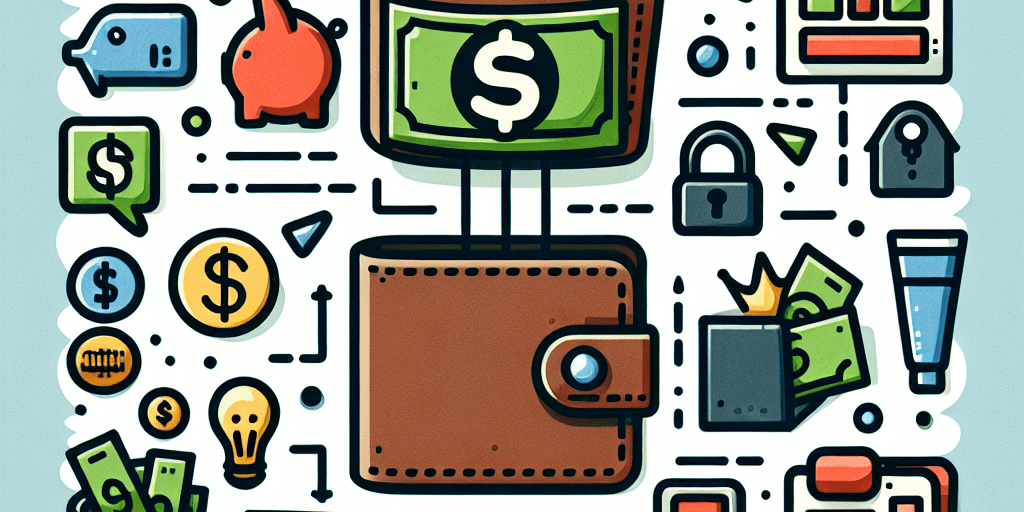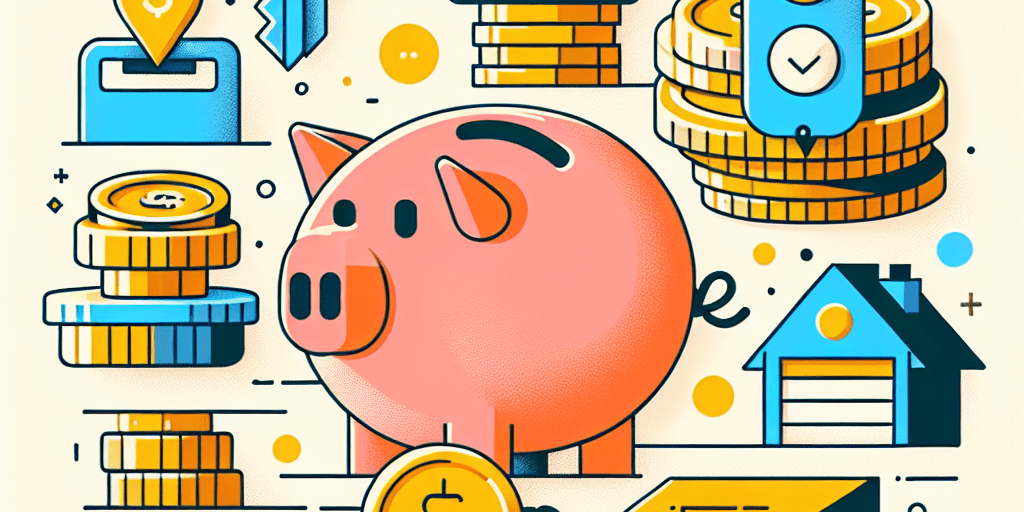
Budgeting for an Apartment: Tips for Financial Planning
Budgeting for an apartment is a crucial step in managing your finances effectively, ensuring you can afford your living space without compromising other financial goals. Whether you’re moving into your first apartment or are a seasoned renter, understanding how to allocate your income towards rent, utilities, savings, and other expenses can make a significant difference in your financial well-being. This guide will provide essential tips for financial planning, helping you to create a budget that covers all your needs, prepares you for unexpected costs, and allows you to live comfortably within your means. From calculating your affordable rent range to saving for emergencies, these strategies are designed to help you navigate the complexities of apartment living without financial stress.
Understanding Your Income and Expenses
Managing personal finances effectively is crucial for achieving financial stability and reaching your long-term goals. The first step in this journey is to gain a thorough understanding of your income and expenses. This process involves assessing how much money you bring in and where it goes each month. By doing so, you can identify opportunities for savings, make informed decisions about your spending, and set realistic financial goals. Let’s dive into how you can assess your monthly income and categorize your expenses to better manage your finances.
Assessing Your Monthly Income
The foundation of personal finance management is knowing how much money you have coming in. Your monthly income is not just your salary; it includes all sources of regular income. To assess your monthly income, follow these steps:
– Calculate your net salary: This is your take-home pay after deductions such as taxes, social security, and retirement contributions.
– Include additional income sources: Don’t forget to add any side hustles, rental income, dividends, or any other sources of income.
– Use an average for variable income: If your income fluctuates, calculate an average based on the past six to twelve months.
Understanding your total monthly income gives you a clear starting point for managing your finances and setting achievable goals.
Identifying and Categorizing Your Expenses
Once you know your income, the next step is to track and categorize your expenses. This will help you understand where your money goes and identify areas where you can cut back. Here’s how to do it:
– Track your spending: Keep a record of all your expenses for at least a month. You can use a budgeting app, spreadsheet, or simply write them down.
– Categorize your expenses: Divide your expenses into categories such as housing, utilities, groceries, transportation, entertainment, and savings.
– Identify fixed and variable expenses: Fixed expenses are those that remain relatively constant each month, like rent or mortgage payments. Variable expenses, such as dining out and shopping, can fluctuate.
By categorizing your expenses, you can easily see where your money is going and make informed decisions about how to allocate your funds more effectively. This step is crucial for setting up a budget that works for you and achieving your financial goals.
Setting Up a Budgeting Plan
Creating a budgeting plan is a fundamental step towards achieving financial stability and reaching your economic goals. Whether you’re looking to save for a big purchase, reduce debt, or simply manage your daily expenses more effectively, a well-thought-out budget can be incredibly empowering. It’s about understanding where your money is going, identifying unnecessary expenditures, and reallocating resources to better serve your financial objectives. In this chapter, we’ll explore how to create a realistic budget that fits your lifestyle and introduce some tools and apps designed to make budgeting easier and more effective.
Creating a Realistic Budget
The first step in setting up a budgeting plan is to create a budget that is both realistic and manageable. This involves taking a close look at your income and expenses to determine how much you can afford to spend and save each month. Here are some key components to consider:
– Track your income: Start by calculating your total monthly income, including salaries, bonuses, and any other sources of income.
– List your expenses: Write down all your monthly expenses, categorizing them into fixed (rent, utilities, car payments) and variable (groceries, entertainment, personal spending) costs.
– Set financial goals: Define what you’re budgeting for. Whether it’s paying off debt, saving for a vacation, or building an emergency fund, having clear goals can help motivate you.
– Allocate funds accordingly: Based on your income and expenses, allocate funds to each category, ensuring that you’re not spending more than you earn.
– Adjust as needed: Life changes, and so will your budget. Regularly review and adjust your budget to reflect changes in your income, expenses, or financial goals.
Creating a realistic budget requires honesty and discipline, but it’s also an opportunity to take control of your finances and work towards your dreams.
Tools and Apps to Help You Budget
Fortunately, we live in an age where technology can assist us in managing our finances more effectively. There are numerous budgeting tools and apps available that can simplify the process of tracking income and expenses, setting goals, and identifying areas for improvement. Here are a few popular options:
– Mint: This app offers a comprehensive overview of your financial picture by tracking your spending, categorizing expenses, and even providing credit score updates.
– YNAB (You Need A Budget): YNAB focuses on giving every dollar a job, helping users to be more intentional about their spending and saving.
– PocketGuard: For those looking to prevent overspending, PocketGuard can help by showing how much disposable income you have after accounting for bills, goals, and necessities.
– GoodBudget: This app uses the envelope system, dividing your income into pots of money for different expenses, making it easier to stick to your budget.
Each of these tools offers unique features aimed at helping you manage your money more effectively. By taking advantage of these resources, you can make the budgeting process less daunting and more productive, paving the way for financial success.

Saving Strategies for Renters
Renting a home can be both a flexible and economical choice for many people, but it also comes with its set of financial challenges. From monthly rent payments to utilities and the occasional rent increase, managing your finances as a renter requires careful planning and savvy saving strategies. In this chapter, we’ll explore practical ways to save on your current living expenses, as well as how to prepare for future financial uncertainties. By adopting these strategies, renters can not only ease their monthly financial burden but also build a solid financial foundation for the future.
How to Save on Rent and Utilities
Saving money on rent and utilities can significantly lower your monthly expenses and free up funds for other financial goals. Here are some strategies to consider:
– Negotiate your rent: Don’t hesitate to negotiate your rent with your landlord, especially if you’re a long-term tenant with a good payment history. Landlords often prefer to keep reliable tenants at a slightly lower rent than to risk finding new ones.
– Consider a roommate: Sharing your living space can halve your rent and utility costs. Make sure to choose a roommate whose lifestyle and financial habits align with yours to avoid potential conflicts.
– Reduce utility bills: Simple changes like using energy-efficient light bulbs, reducing water usage, and unplugging electronics when not in use can lower your utility bills. Some utility companies also offer free energy audits to help identify further savings.
– Look for rental incentives: Some landlords offer incentives like a month of free rent or reduced parking fees to attract new tenants. Keep an eye out for these deals, especially during off-peak moving seasons.
Saving for Emergencies and Future Rent Increases
While cutting down on monthly expenses is crucial, preparing for unexpected financial setbacks and future rent increases is equally important. Here’s how to build a safety net:
– Start an emergency fund: Aim to save at least three to six months’ worth of living expenses. This fund can cover unexpected costs like medical emergencies, car repairs, or sudden unemployment without derailing your finances.
– Plan for rent increases: Rent can increase for various reasons, so it’s wise to anticipate and save for these hikes. If possible, try to negotiate a longer lease term to lock in your current rate, or set aside a small amount each month to cushion against future increases.
– Stay informed about your rental market: Understanding your local rental market can help you anticipate changes and make informed decisions about renewing your lease or moving to a more affordable location.
By implementing these saving strategies, renters can navigate the challenges of renting while securing their financial well-being. Whether it’s cutting down on everyday expenses or preparing for the future, a little planning and proactive management can go a long way.
Managing Debt and Improving Credit Score
In today’s financial climate, managing debt and improving your credit score are two crucial aspects of securing a stable financial future. Whether you’re looking to buy a house, lease a car, or simply secure better renting conditions, a good credit score can open many doors. Conversely, a high level of debt can significantly hinder your financial progress. This chapter focuses on practical strategies for paying down debt and tips for improving your credit score, with a special emphasis on how these efforts can lead to better renting conditions.
Strategies for Paying Down Debt
Paying down debt is not just about freeing up some extra cash each month; it’s about improving your overall financial health and peace of mind. Here are some effective strategies to tackle your debt:
– Debt Snowball Method: This involves paying off your debts from smallest to largest, regardless of interest rate. The psychological win of paying off smaller debts can motivate you to tackle larger ones.
– Debt Avalanche Method: Contrary to the snowball method, the avalanche method focuses on paying down debts with the highest interest rates first. This strategy can save you money on interest payments in the long run.
– Consolidating Debts: Debt consolidation combines multiple debts into a single loan with a lower interest rate. This can simplify your payments and potentially reduce the amount of interest you pay.
– Creating a Budget: A well-structured budget can help you identify areas where you can cut expenses to allocate more funds toward debt repayment.
Remember, the key to paying down debt is consistency and discipline. Even small, regular payments can make a significant difference over time.
Tips for Improving Your Credit Score to Secure Better Renting Conditions
A good credit score is essential for securing favorable renting conditions. Landlords often use credit scores to assess a potential tenant’s reliability. Here are some tips to improve your credit score:
– Pay Bills on Time: Your payment history is a significant factor in your credit score. Ensure you pay all your bills on time, including utilities, credit cards, and loans.
– Keep Balances Low: High credit card balances can negatively affect your credit score. Aim to keep your credit utilization ratio under 30%.
– Check Your Credit Report Regularly: Errors on your credit report can drag down your score. Regularly checking your report allows you to dispute any inaccuracies promptly.
– Limit New Credit Applications: Each time you apply for credit, it can slightly lower your credit score. Apply for new credit accounts only when necessary.
Improving your credit score is a gradual process. It requires patience, discipline, and a commitment to making timely payments and reducing debt. By following these tips, you can improve your credit score, which in turn, can help you secure better renting conditions and achieve your financial goals.
Conclusion
Throughout this guide, we’ve explored various facets of financial management, from understanding your income and expenses to setting up a budgeting plan, saving strategies for renters, and managing debt to improve your credit score. Each chapter and its subsections, such as assessing monthly income, categorizing expenses, creating realistic budgets, utilizing budgeting tools, saving on rent, preparing for emergencies, paying down debt, and enhancing your credit score, are designed to equip you with the knowledge and tools necessary for financial stability and growth.
By applying the principles and strategies discussed, you can gain control over your financial situation, make informed decisions, and set yourself on a path toward achieving your financial goals. Remember, the journey to financial wellness is ongoing, and staying committed to your budgeting plan, continuously seeking ways to save, and being proactive about managing debt and improving your credit score are key to securing better renting conditions and realizing your financial aspirations.

